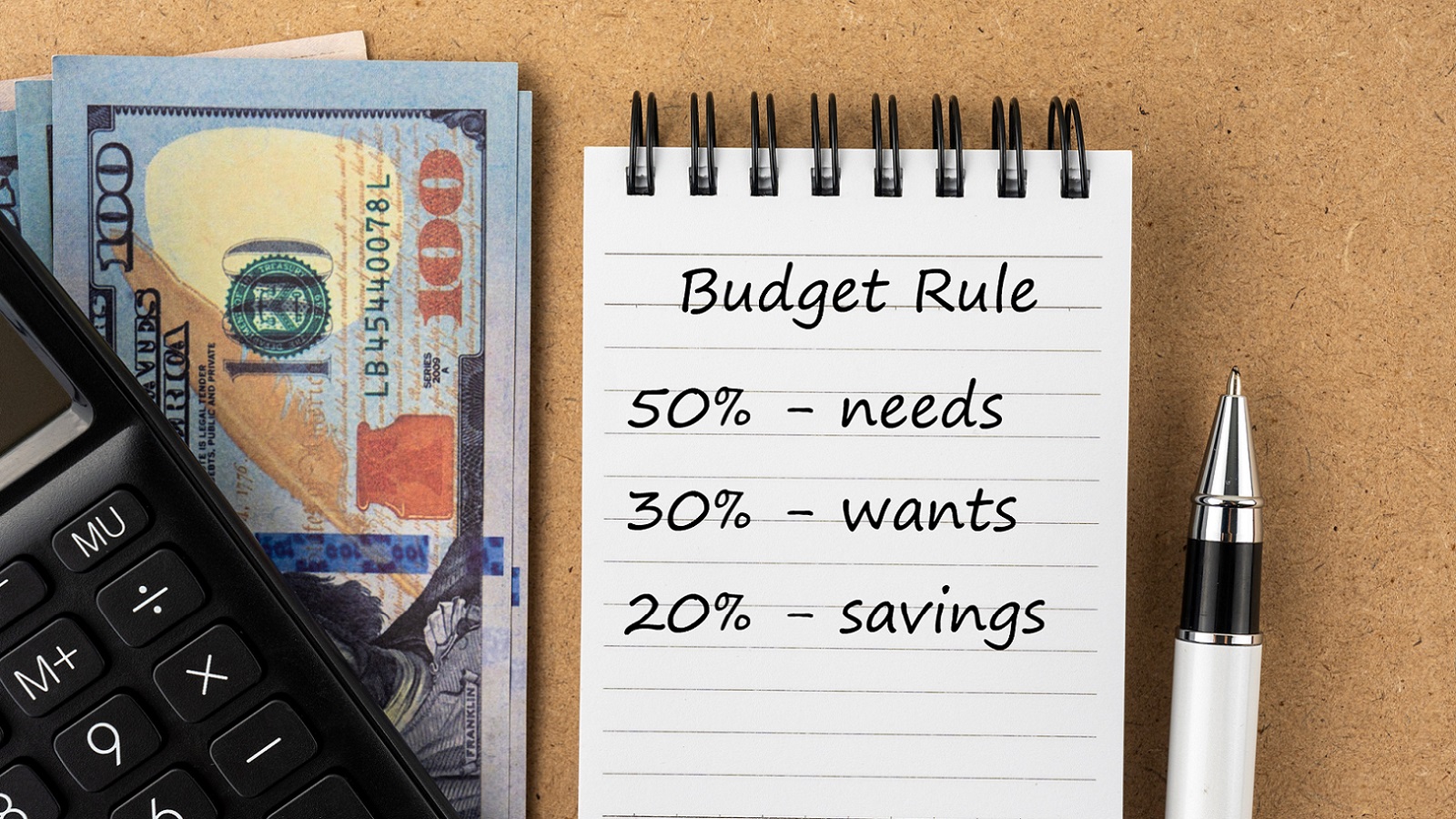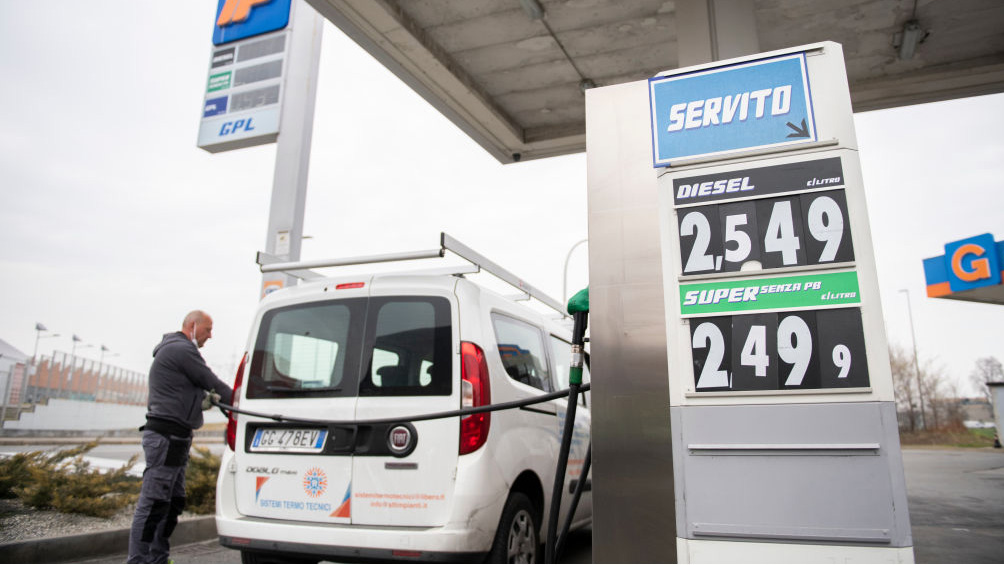Should You Pay Your Bills Automatically?
Stacy says yes; Amanda says no. Here are tips on how to make the strategy work for you — if you want it to.
Profit and prosper with the best of Kiplinger's advice on investing, taxes, retirement, personal finance and much more. Delivered daily. Enter your email in the box and click Sign Me Up.
You are now subscribed
Your newsletter sign-up was successful
Want to add more newsletters?

Delivered daily
Kiplinger Today
Profit and prosper with the best of Kiplinger's advice on investing, taxes, retirement, personal finance and much more delivered daily. Smart money moves start here.

Sent five days a week
Kiplinger A Step Ahead
Get practical help to make better financial decisions in your everyday life, from spending to savings on top deals.

Delivered daily
Kiplinger Closing Bell
Get today's biggest financial and investing headlines delivered to your inbox every day the U.S. stock market is open.

Sent twice a week
Kiplinger Adviser Intel
Financial pros across the country share best practices and fresh tactics to preserve and grow your wealth.

Delivered weekly
Kiplinger Tax Tips
Trim your federal and state tax bills with practical tax-planning and tax-cutting strategies.

Sent twice a week
Kiplinger Retirement Tips
Your twice-a-week guide to planning and enjoying a financially secure and richly rewarding retirement

Sent bimonthly.
Kiplinger Adviser Angle
Insights for advisers, wealth managers and other financial professionals.

Sent twice a week
Kiplinger Investing Weekly
Your twice-a-week roundup of promising stocks, funds, companies and industries you should consider, ones you should avoid, and why.

Sent weekly for six weeks
Kiplinger Invest for Retirement
Your step-by-step six-part series on how to invest for retirement, from devising a successful strategy to exactly which investments to choose.
Setting up automatic payments sure can make managing your bills easier. You can set up bill payments through most checking and saving accounts, and your bank will send the check for you (you’ll even save on stamps). Many vendors also will allow you to set up online payments, giving them the ability to charge your credit card automatically. Some will even offer you a small discount for the privilege.
But auto-pay has its drawbacks. And it doesn't work for everyone. Are you ready to put your bills on autopilot? To help you find the right answer for you, read our arguments for and against it, as well as comments from some of our Facebook fans.
Stacy's Pro Take: Call me a born-again auto-pay believer. More than a decade ago (wow, I feel old), the "set it and forget it" strategy of auto-pay wound up costing me more in overdraft fees than it saved me in late-payment fees. I wasn't carefully monitoring the balance in my bank account and occasionally had insufficient funds to cover surprisingly hefty utility bills. So I deemed auto-pay not for me and went back to very consciously paying bills myself.
From just $107.88 $24.99 for Kiplinger Personal Finance
Become a smarter, better informed investor. Subscribe from just $107.88 $24.99, plus get up to 4 Special Issues

Sign up for Kiplinger’s Free Newsletters
Profit and prosper with the best of expert advice on investing, taxes, retirement, personal finance and more - straight to your e-mail.
Profit and prosper with the best of expert advice - straight to your e-mail.
[EMBED TYPE=POLL ID=23420]
Then, about a year ago, I had a baby — and significantly less time to devote to bill-paying. So trying to financially go on autopilot again made sense. Auto-paying my bills allows me to manage my finances in my own time. Simply schedule your payments to be made before their due dates, and you're free to double-check your budget whenever you can without fear of late payments.
But just like you wouldn't take a nap when driving with cruise control, auto-pay doesn't free you from having to remain aware of where you are financially. You still have to keep track of all your bills and payments, making sure the right amounts are charged and covered at the right time.
To help ensure that your accounts are sufficiently funded, set up alerts that notify you via e-mail or text message if your account has dipped below a certain level. Many banks offer this service, as does our favorite budgeting site, Mint.com.
Budgeting sites can provide a lot of other services to help you stay on top of your auto-pay strategy, too. Besides making it easier to monitor your whole financial picture, Mint can help you make sure you don't get overcharged on any bills you've set up to pay automatically. For example, if you usually spend $80 on your cell-phone bill each month, and you wind up paying $100 one time, Mint can alert you as soon as the payment goes through. (For more information about Mint and our other favorite budgeting sites, see Which Budgeting Site Is Best for You?)
[page break]
Amanda's Con Take: Automatic bill pay is convenient, but it still requires some financial discipline. "Auto-pay doesn't excuse you from reviewing your bills every month," says Randy Kratz, of the financial-planning firm Willoughby Hill Wealth Management, outside Houston. "If you don't keep track of your spending, you're more likely to lose track and lose control."
So if you're looking for an easy way out of dealing with your finances, auto-pay certainly isn't it (such a thing doesn't even exist). I've been experimenting with auto-pay, and I've already discovered several costly dangers with the approach.
Bills that have a variable rate, such as your electric bill, can be especially tricky to track if you schedule automatic payments to cover them. Just this past month, my heating bill rang up to almost double the usual amount, and I didn’t realize it until after my bank account was overdrawn — and my bank had already charged me a $10 fee to transfer money from my savings account to my checking account.
And giving debtors access to your banking account can open you up to accidental overcharges that can be tough to correct, as some of our Facebook fans note in the comments below.
Auto-pay can also become a huge headache if you lose your debit card or your credit card expires. If you have multiple bills tied to one card, you'll have to update your payment preferences with each debtor whenever you switch cards.
And if you fail to update any debtors, you could wind up with a series of delinquent payments and a dent in your credit score if they try and fail to process auto payments with your outdated payment preferences. When I lost my debit card last summer, I forgot that it was tied to my gym membership. By the time the gym finally notified me that I was late on a payment, I owed two months worth of dues, plus late fees. I had to dip into my savings to help cover the costs.
Facebook Fans Face Off
We asked Facebook fans, "Do you use auto-pay to pay your bills? Why or why not?" And our respondents were pretty evenly split. A slight majority fell on the pro side, citing ease and avoiding late payments as their main reasons. The anti-auto-payers feel more in control of their finances when submitting payments each month. Here are some comments (edited for grammar and punctuation) from both sides of the aisle (and thanks to everyone for sharing your thoughts!):
Tom Zanki: Yes, I use auto-pay as much as possible, at least for relatively fixed and recurring expenses. It gets the job done while saving time (and some money on stamps).
Steve Hawkins: Negative on the auto-pay. I pay everything electronically, but I decide who gets how much and when they get it. Giving any company direct access to a bank account is asking for trouble. For example, my sister's auto-pay electric bill somehow got an extra zero added to it. It took her a week to get the money back in the account, and she still had to pay for the bounced checks out of her own pocket.
Eric Leather: Auto-pay everything, then manually enter payments into Quicken to double-check that the amounts and dates are right.
Dick Novack: I pay 100% online, but I do not let creditors auto-debit. My horror story is that a national company restarted debiting my account eight months after the contract was over. It took a change of my credit card number to get it to stop. Now I'm in court trying to get a year of debits back.
Michelle McNabb: I always use auto-pay so that I'm never late and credit cards are always paid in full. I always see the amount to be billed days before the transaction takes place (through e-mail reminders and invoices), so I've never been billed the wrong amount.
Derek Moniz: Usually not, unless they offer a discount or promotion for using auto-pay.
Jim Hawkins: I always forget [to pay my bills] if I don't have them on auto-pay.
Debi Pinell: No, it's too hard to stop the payments if you move or discontinue a service without incurring bank fees.
Michelle Jimenez: Auto-pay via the company I'm being billed by: No. Bill-pay via my bank: Yes. Why? Control.
Alexander Xochihua: I like to have control over the amounts and frequency of payments made. Plus, I don't trust auto-pay. One missed payment or system error, and there goes your credit score.
Profit and prosper with the best of Kiplinger's advice on investing, taxes, retirement, personal finance and much more. Delivered daily. Enter your email in the box and click Sign Me Up.

-
 Quiz: Do You Know How to Avoid the "Medigap Trap?"
Quiz: Do You Know How to Avoid the "Medigap Trap?"Quiz Test your basic knowledge of the "Medigap Trap" in our quick quiz.
-
 5 Top Tax-Efficient Mutual Funds for Smarter Investing
5 Top Tax-Efficient Mutual Funds for Smarter InvestingMutual funds are many things, but "tax-friendly" usually isn't one of them. These are the exceptions.
-
 AI Sparks Existential Crisis for Software Stocks
AI Sparks Existential Crisis for Software StocksThe Kiplinger Letter Fears that SaaS subscription software could be rendered obsolete by artificial intelligence make investors jittery.
-
 I Need to Cut $1,000 From My Monthly Budget, and I've Already Given Up Starbucks and Dining Out. What Else Can I Do?
I Need to Cut $1,000 From My Monthly Budget, and I've Already Given Up Starbucks and Dining Out. What Else Can I Do?Here are some creative ways to save up to $1,000 a month, even if you feel like you've already made all of the obvious cuts.
-
 I'm a Government Employee and Need to Get By Until the Shutdown Ends. What Can I Do?
I'm a Government Employee and Need to Get By Until the Shutdown Ends. What Can I Do?The second-longest shutdown in history is leaving many federal workers with bills due and no paycheck to cover them. Here's what you can do to get by.
-
 What Does Medicare Not Cover? Eight Things You Should Know
What Does Medicare Not Cover? Eight Things You Should KnowMedicare Part A and Part B leave gaps in your healthcare coverage. But Medicare Advantage has problems, too.
-
 The 50-30-20 Budget Rule: A Simple Way to Save Money
The 50-30-20 Budget Rule: A Simple Way to Save MoneySaving Using the 50-30-20 budget rule is an easy way to save. It helps you prioritize saving while paying off debt.
-
 Four Smart Steps To Take Before Buying Your First Home
Four Smart Steps To Take Before Buying Your First Homehome Buying your first home can be daunting. Here are four things you need to do years before you start house-hunting to prepare financially for the biggest purchase of your life.
-
 'Food Tax': Which States Still Tax Groceries?
'Food Tax': Which States Still Tax Groceries?State Tax Ten states still tax groceries, but that figure is shrinking.
-
 How Our Family Fights Inflation
How Our Family Fights InflationBudgeting Millennials typically spend more than other generations on certain expenses that have been increasing most rapidly. Here are some tips to cut your losses.
-
 Gas Prices Around the World
Gas Prices Around the WorldBudgeting Many world gas prices can make what Americans pay at the pump seem like a bargain. But not all.

